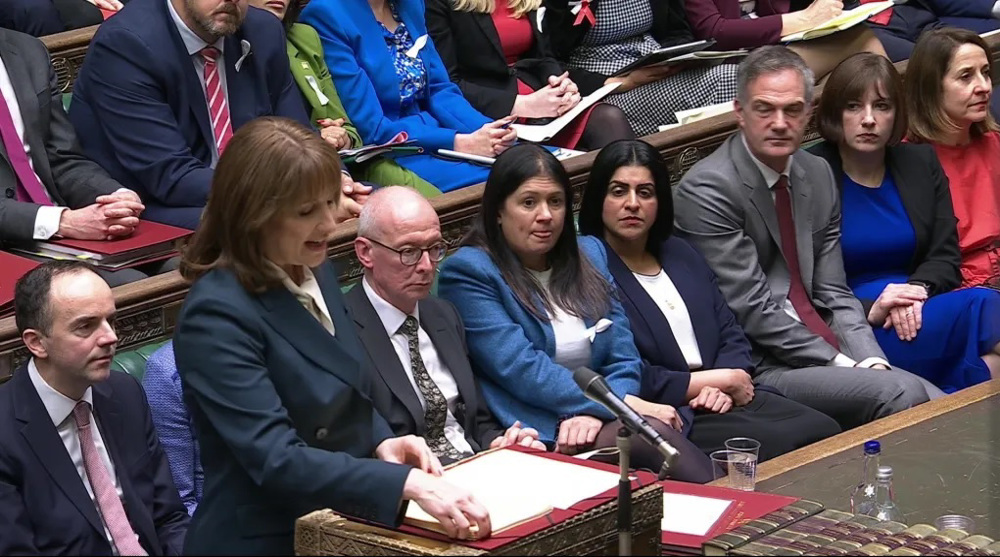Rishi Sunak uses new budget to mark his stamp on Tory party
Newly-appointed chancellor, Rishi Sunak, has unveiled his budget to the House of Commons in an atmosphere of political uncertainty over post-Brexit trade negotiations and public anxiety over the coronavirus outbreak.
Sunak, who is widely viewed as a rising star in the Tory party, has tried to capitalise on the twin fears (Brexit and coronavirus), to further stamp his mark on the Conservative government.
Addressing a fearful British public, Sunak proclaimed: “We will get through this together”.
Mixed budget
Sunak – who was only appointed chancellor 27 days ago – has opted for a mixed budget, by cutting taxes but also boosting funding for vital services, to try to lift the mood of the party and the country.
Most strikingly, the chancellor unveiled a £30 billion aid package to manoeuvre the economy through the coronavirus outbreak.
As part of this emergency fiscal stimulus, the chancellor is abolishing business rates for many firms in England, extending sick pay and boosting National Health Service (NHS) funding.
Disruptive impact
More broadly, Sunak warned of “temporary disruption” to the British economy, predicting that up to 20 percent of the workforce could be absent at any one time due to fears of the COVID-19 disease.
In an unmistakably populist move, the chancellor pledged to give the NHS “whatever extra resources” it needs to cope with the coronavirus outbreak.
Beyond emergency fiscal measures focused on containing the impact of the coronavirus outbreak, the core of Sunak’s budget is essentially a classic Tory financial package designed to shore up the position of the rich and upper middle classes.
Some of its key features include reducing lifetime limits for entrepreneurs’ relief from £10 million to £1 million; cancelling a planned increase in spirits duty (tax) and freezing duties on beer and wine; and abolishing Value Added Tax (VAT) on e-books.
Carrots and sticks
Reflecting the anti-immigration mood of the Conservative party and their social bases, the chancellor is raising the health surcharge for migrants to £624.
The chancellor also tried to honour the Tories’ election manifesto by pledging to pour money into national infrastructure, notably transportation and communications with a view to boosting economic growth outside London and the south-east of England.
To that end, Sunak announced more than £600 billion for road, rail and broadband projects over five years. But crucially he hasn’t fully explained where the money for these projects will come from, thus triggering speculation much of it will be financed by borrowing.
The triple combination of appearing to be seen to robustly respond to a public health emergency, whilst simultaneously satisfying the Tories’ base and honouring populist election promises, are set to dramatically raise Sunak’s profile in the British establishment.
Iran FM declares ‘good start’ as US–Iran talks conclude in Muscat
Iran strongly condemns 'terrorist' mosque blast in Islamabad
Iran enters talks backed by national power, popular support: MP
France, UK involved in assassination of Muammar Gaddafi's son: Reports
Shia mosque explosion in Islamabad kills more than 30, injures over 160
Iran defense minister in Azerbaijan to boost security, defense ties
Iran-US talks in Oman focus solely on nuclear issue: Envoy
Ex-PM Olmert admits Israel committing ‘ethnic cleansing’ in West Bank














 This makes it easy to access the Press TV website
This makes it easy to access the Press TV website